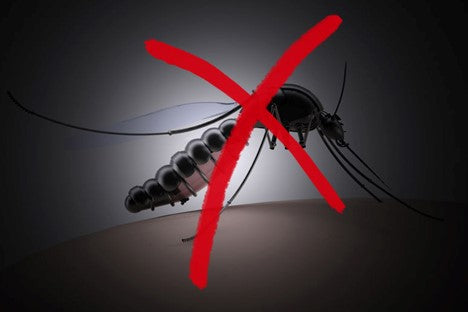
Can Mosquito Bites Spread COVID-19 and Other Diseases?

Mosquito bites are no joke. In these uncertain times, people want to know if mosquito bites can spread viruses like COVID-19 and other diseases that humans need to be wary of.
Let's not bury the lede. While mosquitoes can and do spread a variety of diseases like malaria, yellow fever and Zika, there is no data at all indicating that mosquitoes spread respiratory illnesses like COVID-19.
To get a better grasp on why they aren't making the domestic and international coronavirus situation worse, let's take a look at how these flying insects transmit diseases.
How Mosquitoes Spread Viruses
Mosquitoes transmit diseases by biting into human skin to draw blood, which they feed upon. These pests are known as "vectors." Fleas and ticks are also vectors. In epidemiology, a disease vector carries and transmits illnesses to other living creatures. In the case of mosquitoes, they spread pathogens via saliva and blood.
When a female mosquito bites (males don't bite), it extracts your blood. As it sucks out your blood, the female mosquito emits saliva that can enter your bloodstream. A fluid exchange occurs. That’s how a mosquito can be infected with a disease by biting an organism, then become a vector and spread that disease the next time it bites — and exchanges fluid with — another living organism. Infections coming from these airborne pests are passed into the blood.
Do Mosquitoes Spread Coronavirus?
As we stated at the beginning of this post, mosquitoes are not a vector of the coronavirus. COVID-19 is spread through the air from person to person (coughing, sneezing, breathing, etc.), as well as contact with aspirated particulates on hard surfaces, which is why hand disinfecting and wearing masks have been emphasized by local, national and international health authorities. Mosquito bites and coronavirus have no correlation.
Diseases Spread by Mosquito Bites
So, it seems we've dodged the bullet as far as COVID-19 and mosquito bites are concerned. But that doesn't mean you should ignore mosquito bites, as these determined little insects do spread many dangerous diseases, including:
- Dengue (a flu-like disease), which is transmitted by the Aedes aegypti mosquito and presently found in North and South America and other regions.
- Chikungunya virus, also spread by the Aedes aegypti mosquito. Fevers and joint pain are common symptoms.
- Malaria, which is spread by the Anopheles mosquito (in Africa). Malaria symptoms can be quite severe and cause death. Currently, more than 400,000 people die from malaria every year.
- Yellow fever, transmitted by the Aedes aegypti mosquito (which means infection is possible in North America). Fever, vomiting and even death can result from yellow fever.
- West Nile virus, spread by the Culex mosquito, can cause stiff and weak muscles, fever, convulsions and other strong symptoms and can result in death. This disease is a major issue in the continental United States.
- Zika, transmitted by the Aedes aegypti and Aedes albopictus mosquitoes, got a lot of attention in the news due to the severe issues it causes for children in the wombs of infected mothers. Currently, the CDC reports no transmissions of Zika in the U.S., but this disease is definitely on their radar.

Protect Yourself Against Mosquito Bites
While mosquitoes can't spread COVID-19 or HIV (mosquitoes only inject salvia into humans, not infected blood, which HIV needs for transmission), these flying insects can clearly still cause us a lot of harm.
MosquitoNix® offers a variety of pest control services and solutions to keep mosquitoes, ticks and other threatening insects away from your private and commercial properties, helping protect you and the people you are responsible for from mosquito-borne diseases.
Leave a comment
Comments will be approved before showing up.
Also in News

Kid Friendly Mosquito & Tick Defense on Long Island
Kid Friendly Mosquito & Tick Defense on Long Island



